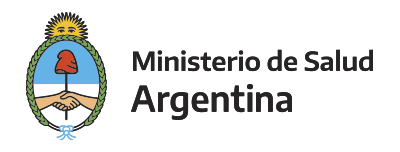Please use this identifier to cite or link to this item:
http://sgc.anlis.gob.ar/handle/123456789/1468| DC Field | Value | Language |
|---|---|---|
| dc.contributor.author | Volta, Bibiana J. | en_US |
| dc.contributor.author | Russomando, Graciela | en_US |
| dc.contributor.author | Bustos, Patricia L. | en_US |
| dc.contributor.author | Scollo, Karenina | en_US |
| dc.contributor.author | De Rissio, Ana María | en_US |
| dc.contributor.author | Sanchez Leon, Zunilda | en_US |
| dc.contributor.author | Cardoni, Rita L. | en_US |
| dc.contributor.author | Bua, Jacqueline | en_US |
| dc.date.accessioned | 2019-12-09T18:38:41Z | - |
| dc.date.available | 2019-12-09T18:38:41Z | - |
| dc.date.issued | 2015-07 | - |
| dc.identifier.uri | http://sgc.anlis.gob.ar/handle/123456789/1468 | - |
| dc.description.abstract | Chagas congenital infection is an important health problem in endemic and non-endemic areas in which Trypanosoma cruzi-infected women can transmit the parasite to their offspring. In this study, we evaluated the antibody levels against the T. cruzi Shed Acute Phase Antigen (SAPA) in 91 binomial samples of seropositive pregnant women and their infected and non-infected children by ELISA. In 70 children without congenital T. cruzi transmission, the titers of anti-SAPA antibodies were lower than those of their seropositive mothers. In contrast, 90.5% of 21 congenitally infected children, at around 1 month of age, showed higher anti-SAPA antibody levels than their mothers. Subtracting the SAPA-ELISA mother OD value to the SAPA-ELISA child OD allowed efficient detection of most T. cruzi congenitally infected children immediately after birth, when total anti-parasite antibodies transferred during pregnancy are still present in all children born to seropositive women. A positive correlation was observed between parasitemia levels in mothers and infants evaluated by quantitative DNA amplification and anti-SAPA antibody titers by ELISA. As SAPA serology has proved to be very efficient to detect T. cruzi infection in mother-child binomial samples, it could be of extreme help for early diagnosis of newborns, in maternities and hospitals where DNA amplification is not available. This prompt diagnosis may prevent drop out of the long-term follow-up for future diagnosis and may ensure early trypanocidal treatment, which has proved to be efficient to cure infants with congenital Chagas disease. | en_US |
| dc.language.iso | en | en_US |
| dc.relation.ispartof | Acta tropica | en_US |
| dc.subject | Infantes | en_US |
| dc.subject | Infección congénita | en_US |
| dc.subject | Mujeres Embarazadas | en_US |
| dc.subject | SAPA | en_US |
| dc.subject | Serología | en_US |
| dc.subject | Derrame de antígeno de fase aguda | en_US |
| dc.subject | Trypanosoma cruzi | en_US |
| dc.title | Diagnosis of congenital Trypanosoma cruzi infection: A serologic test using Shed Acute Phase Antigen (SAPA) in mother-child binomial samples | en_US |
| dc.type | Artículo | en_US |
| dc.identifier.doi | 10.1016/j.actatropica.2015.03.026 | - |
| item.fulltext | No Fulltext | - |
| item.languageiso639-1 | en | - |
| item.openairetype | Artículo | - |
| item.grantfulltext | none | - |
| item.cerifentitytype | Publications | - |
| item.openairecristype | http://purl.org/coar/resource_type/c_18cf | - |
| crisitem.author.dept | Instituto Nacional de Parasitología (INP) | - |
| crisitem.author.dept | Administración Nacional de Laboratorios e Institutos de Salud “Dr. Carlos G. Malbrán” (ANLIS) | - |
| crisitem.author.dept | Departamento de Investigación (INP) | - |
| crisitem.author.parentorg | Administración Nacional de Laboratorios e Institutos de Salud “Dr. Carlos G. Malbrán” (ANLIS) | - |
| crisitem.author.parentorg | Instituto Nacional de Parasitología (INP) | - |
| Appears in Collections: | Publicaciones INP | |
Items in DSpace are protected by copyright, with all rights reserved, unless otherwise indicated.

